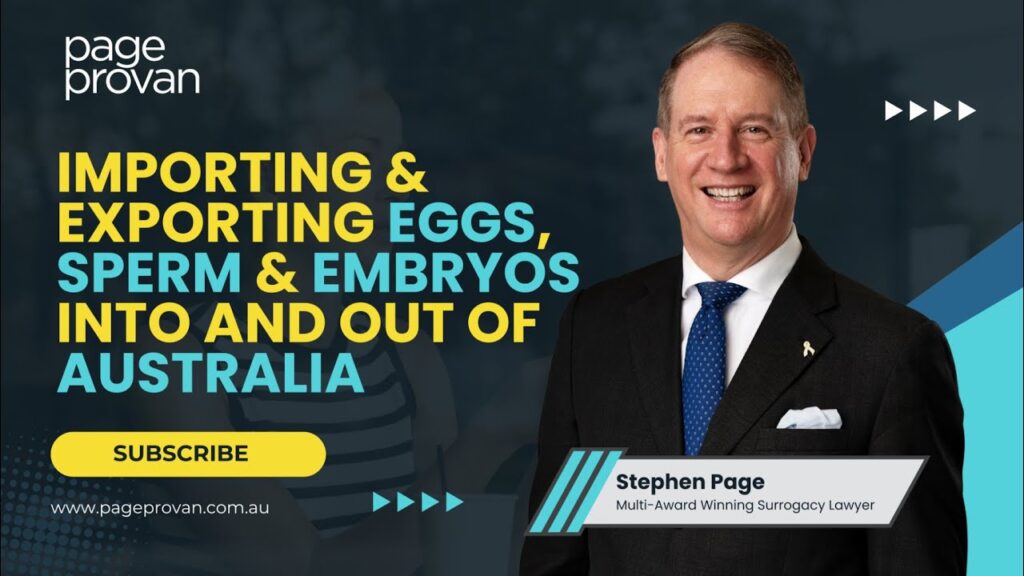The impact of COVID-19 on your ACT surrogacy journey
The disruptive effect of COVID-19 on our society has been extraordinary, and regrettably has impacted and will continue to impact on those seeking to be parents through surrogacy.
This post focuses on intended parents living in the ACT who seek to become parents through surrogacy in the ACT. COVID-19’s impact on your ACT surrogacy journey will depend how far along the journey you are. I will focus on the whole journey. COVID-19 makes the journey more complex, likely longer and possibly more costly. COVID-19 must be factored into every ACT surrogacy journey.
Step 1 – creation of embryos
As the Fertility Society of Australia has made plain, caution is the new normal when embryos are created. IVF clinics will be wanting to ensure that those who provide their sperm or eggs are COVID-19 free. This will likely mean in turn that there will be delays in the creation of embryos. You should be talking to your fertility specialist about how COVID-19 is likely to impact on your journey. The impact of COVID-19 is likely to change- as developments concerning COVID-19 change, at times on a daily basis.
Step 2- choosing your surrogate
You will be wanting to ensure that your surrogate is COVID-19 free. This is something to be discussed with her, and with doctors.
Step 3- counselling and entering into the surrogacy arrangement
Currently the Australia and New Zealand Infertility Counsellors Association (ANZICA) requires pre-signing counselling to include an occasion when all the parties and the counsellor are altogether in the one room. It was considered that this was a more thorough way of undertaking counselling than doing so remotely. Whether this remains the case with risk of infection from COVID-19, where everyone seems to be working remotely, remains to be seen.
Once the counselling has been undertaken, and the report obtained, the surrogacy arrangement can be signed.
Step 4- undertaking the implantation
Australian IVF clinics will do what they can to avoid implanting an embryo into an obviously sick surrogate. All Australian clinics will act in compliance with Fertility Society of Australia directives on point, because:
- Unless the directives are otherwise overridden by some law, they will be considered binding.
- It is good practice. Therefore not to comply might mean difficulties for the clinic with reputational issues, but substantial issues in the future about obtaining insurance.
- Failure to comply could put the licence of the IVF clinic at risk.
However, part of the concern about COVID-19 is that apparently well people are already infected. There is the possibility that the surrogate may already be infected or become infected while pregnant. The current information is that children have been born normally. However, as the Fertility Society of Australia has pointed out, this is off a low data base, and these are early days. Whether this means that IVF clinics will put off the implantation, I simply don’t know.
Step 5- the birth!
There may be regulations in place meaning that only one of you can attend the birth. You should be prepared that you may not be able to attend the birth – either because you have COVID-19 or you have been exposed to COVID-19 or because of government regulation. There has been regulation overseas restricting who can attend at the hospital. You should make it part of your planning that if you cannot attend, and government regulation does not stop someone else attending- that you have someone you trust able to attend the birth in your place- such as your mother, sister or a close family friend.
Step 6- court
The usual process after the child is born is to swear affidavit material for court, followed by an application to the Supreme Court. In the ACT, surrogacy parentage applications occur with a physical appearance before a judge with the parents, their baby, the surrogate and her partner and their lawyers.
The Supreme Court has issued a notice encouraging appearances generally electronically. Whether the Supreme Court will require physical appearances in surrogacy parentage applications is not known at this stage,
About me
I am a dad through surrogacy . I have also suffered infertility. I have been described as Australia’s leading surrogacy lawyer for good reason. I have advised in about 1600 surrogacy journeys- for clients right across Australia,- from the outback to the big cities- and for clients who at last count were in 30 countries overseas. Clients of mine have undertaken surrogacy domestically or done so internationally, including undertaking or contemplating in countries that would never have been associated with surrogacy. I give advice to Australian IVF clinics about regulatory issues.
My first surrogacy case was in 1988. I am the only lawyer who has appeared in four States to obtain surrogacy parentage orders: New South Wales, Queensland, Victoria and Tasmania.
I have acted in groundbreaking cases concerning surrogacy, including the first case in the world about what is conception.
I have been recognised internationally, including being a Fellow of the International Academy of Family Lawyers (including both its LGBT Committee and its Surrogacy/Parentage Project Committee), a Fellow of the Academy of Adoption and Assisted Reproduction Attorneys and an international representative on the Artificial Reproductive Technologies Committee of the American Bar Association.
Most importantly, I have more expertise than any other lawyer in this space in Australia- and I consider it a great honour to help people become parents.












